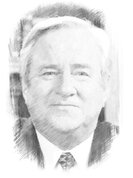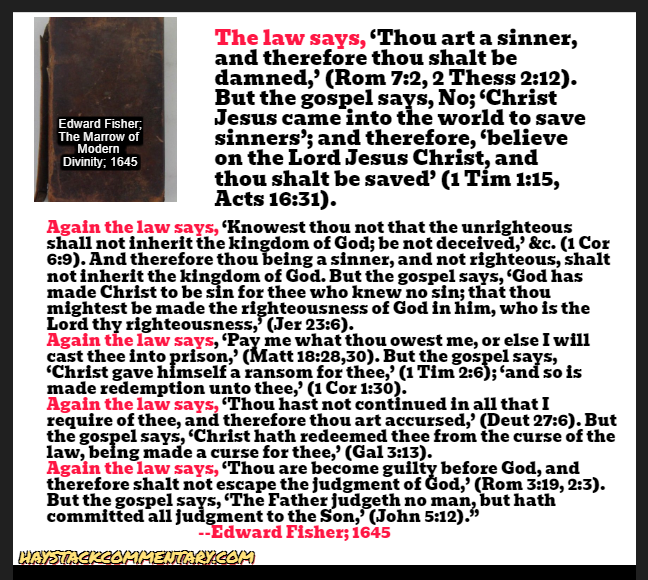F - Past Witnesses
- Jerry Falwell - Robert H Farish - Francois Fenelon - Edward Fisher - P.T. Forsyth - RT France - Andrew Fuller -
jerry falwell
'A war for the essence and character of American Christianity' described in new book
American Christianity is at an inflection point. There is “a war for the essence and character of American Christianity,” writes Tim Alberta, a national political reporter for the Atlantic. The son of an evangelical pastor in Michigan, Alberta challenges conservative Christian culture from an insider’s perspective in his new book, The Kingdom, the Power, and the Glory: American Evangelicals in an Age of Extremism. Alberta says that for decades, American evangelicals have been taught that the United States is rightfully theirs and is being taken away from them. Figures such as Liberty University founder Jerry Falwell Sr., Ralph Reed of the Faith and Freedom Coalition and David Barton of WallBuilders and, more recently, others such as Charlie Kirk of Turning Point USA, Jerry Falwell Jr. and evangelical talk radio host Eric Metaxas have spread this message.
(Jon Ward/Yahoo 12/5/23)
READ MORE>>>>>
American Christianity is at an inflection point. There is “a war for the essence and character of American Christianity,” writes Tim Alberta, a national political reporter for the Atlantic. The son of an evangelical pastor in Michigan, Alberta challenges conservative Christian culture from an insider’s perspective in his new book, The Kingdom, the Power, and the Glory: American Evangelicals in an Age of Extremism. Alberta says that for decades, American evangelicals have been taught that the United States is rightfully theirs and is being taken away from them. Figures such as Liberty University founder Jerry Falwell Sr., Ralph Reed of the Faith and Freedom Coalition and David Barton of WallBuilders and, more recently, others such as Charlie Kirk of Turning Point USA, Jerry Falwell Jr. and evangelical talk radio host Eric Metaxas have spread this message.
(Jon Ward/Yahoo 12/5/23)
READ MORE>>>>>
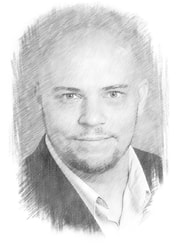 Flavio Rogerio Hickel Jr
Flavio Rogerio Hickel Jr
While born-again Christians favored Carter over Republican Gerald Ford, 58 to 33 percent, in the 1976 Presidential Election, their allegiance switched to Ronald Reagan in the 1980s, due in part to the work of independent (and eventual Southern) Baptist Jerry Falwell’s Moral Majority. Falwell formed his political organization in advance of the 1980 election to counter what he and his allies perceived to be a moral decline in America in the 1960s and 1970s. Falwell’s Moral Majority sought a return to promoting the (White) Christian traditional heterosexual nuclear family on the heels of recent movements aimed at greater racial, gender and sexual equality. The group helped deliver important electoral gains, especially in the South, for Reagan, who similarly campaigned as a “family values” conservative. The Moral Majority supported Reagan’s successor, George H.W. Bush, in 1988, which demonstrated the power and GOP leanings of the White evangelical vote. --Flavio Rogerio Hickel Jr; Washington Post; Born-again Christians are less Southern Baptist than they used to be 7.7.23
March 19, 2023: Foreign Policy: How U.S. Evangelicals Helped Homophobia Flourish in Africa
That same rhetoric drawing connections between homosexuality and pedophilia has remained largely unchanged from how evangelicals created panic around gay people in the early days of the anti-gay movement. In a 1981 letter, U.S. preacher Jerry Falwell described gay people as out to “recruit,” saying “many of them are out after my children and your children” and that they “must not be recruited to a profane lifestyle.” Falwell also added that gay people threatened families because they didn’t reproduce.
That same rhetoric drawing connections between homosexuality and pedophilia has remained largely unchanged from how evangelicals created panic around gay people in the early days of the anti-gay movement. In a 1981 letter, U.S. preacher Jerry Falwell described gay people as out to “recruit,” saying “many of them are out after my children and your children” and that they “must not be recruited to a profane lifestyle.” Falwell also added that gay people threatened families because they didn’t reproduce.
July 13, 2020: Baptist News Global: California and the making of American evangelicalism
Understanding the development of evangelicalism in the American West helps explain the rise of the Moral Majority and its support for yet another California Republican who ran for president in 1980 — Ronald Regan. Jerry Falwell and Pat Robertson were not inventing a new way for evangelical Christians to engage with American politics out of thin air; rather they were building upon a tradition of evangelical engagement with American politics. This engagement continues to the present day.
Understanding the development of evangelicalism in the American West helps explain the rise of the Moral Majority and its support for yet another California Republican who ran for president in 1980 — Ronald Regan. Jerry Falwell and Pat Robertson were not inventing a new way for evangelical Christians to engage with American politics out of thin air; rather they were building upon a tradition of evangelical engagement with American politics. This engagement continues to the present day.
May 27, 2018: New York Times: The Evangelical Fight to Win Back California
Franklin Graham stood in a packed locker room at the Rose Bowl, surrounded by fellow evangelists, pastors, and his top Los Angeles donors. It was two weeks before the California primary, and Mr. Graham was urging them to take a stand against their state’s “blue wall.”
The blue wall of California, Mr. Graham told the gathering, represents secular values that have taken root on the country’s west coast.
Franklin Graham stood in a packed locker room at the Rose Bowl, surrounded by fellow evangelists, pastors, and his top Los Angeles donors. It was two weeks before the California primary, and Mr. Graham was urging them to take a stand against their state’s “blue wall.”
The blue wall of California, Mr. Graham told the gathering, represents secular values that have taken root on the country’s west coast.
Robert H Farish
In Luke 10:25-28 we have some teaching of our Lord on the subject "And behold, a certain lawyer stood up and made trial of him saying, Teacher, what shall I do to inherit eternal life? and he said unto him, What is written in the law? How readest thou? And he answering said, Thou shalt love the Lord thy God with all thy heart, and with all thy soul, and with all thy mind; and thy neighbor as thyself, And he said unto him, Thou hast answered right: this do and thou shalt live."
Here we have a question presented to the Lord by a lawyer. The question is, "What shall I do to inherit eternal life?" Note that the question has to do with the human effort required to inherit eternal life. The one raising the question did not think that he could have eternal life in possession in this life as is evidenced by his question. He wanted to know what he could do to inherit eternal life. That the Lord did not believe nor teach that one can have eternal life in possession is evident from several considerations. He did not correct the lawyer on this point, but caused him to answer his own question and when the lawyer had answered his own question Christ endorsed his answer by saying, "Thou hast answered right: this do, and thou shalt live." Thus we learn that man must do something to live — that eternal life is had in prospect, that is, it is a thing to be inherited — and that love is doing.
The first part of the answer will serve as our text for this time. "Thou shalt love the Lord thy God with all thy heart, and with all thy soul, and with all thy strength and with all thy mind." We are to love God with all the faculties of our being, with all our heart, which includes the emotions, with all our soul, which takes in all the spiritual faculties, with all our strength, the energy of our being, with all our mind, this involves the intellectual faculties. All the powers of our being are to be concentrated in love for God. But suppose we be a bit more specific. We are not only required to love God with our heart, soul, and mind but with our 'strength. How could we love God with our strength other than by exercising that strength in doing His will? That, my friends, is human effort.
But another passage on the subject of man's love for God. Romans 8:28, "And we know that to them that love God all things work together for good, even to them that are called according to his purpose." "Them that are called according to his purpose" are here shown to be "them that love God." This clearly establishes that man has a part in being called, for them that love God are the ones called according to his purpose. Note that it is "them that love God," not, "them that God loves." If "them that are called" included all that God loved, then all men would be in that number for God loved the world. The number of them called according to God's purpose is limited to them that love God. We are called through the gospel. Second Thessalonians 2:14, "Whereunto he called you through our gospel, to the obtaining of the glory of our Lord Jesus Christ." Thus we see that God does not arbitrarily and irresistibly call any individual but rather calls all through the gospel. Those who by obedience to the gospel accept this call constitute the "them that are called according to his purpose." But look at Romans 8:28 again to be fully assured that "them that love God" and "them that are called according to his purpose" are one and the same class. "And we know that to them that love God all things work together for good, even to them that are called according to his purpose." Well, as "them that love God" and "them that are called according to his purpose" are the same class, the same ones, just described by different terms, we raise the question, Who is it that loves God? What is the gauge by which we can determine if we love God? Do you love God? How do you know? This is a vital thing for we have learned that if you do not love God you are not among "them called according to his purpose."
--Robert H Farish; The Gospel Guardian; Thou Shalt Love The Lord Thy God 8.12.54
Here we have a question presented to the Lord by a lawyer. The question is, "What shall I do to inherit eternal life?" Note that the question has to do with the human effort required to inherit eternal life. The one raising the question did not think that he could have eternal life in possession in this life as is evidenced by his question. He wanted to know what he could do to inherit eternal life. That the Lord did not believe nor teach that one can have eternal life in possession is evident from several considerations. He did not correct the lawyer on this point, but caused him to answer his own question and when the lawyer had answered his own question Christ endorsed his answer by saying, "Thou hast answered right: this do, and thou shalt live." Thus we learn that man must do something to live — that eternal life is had in prospect, that is, it is a thing to be inherited — and that love is doing.
The first part of the answer will serve as our text for this time. "Thou shalt love the Lord thy God with all thy heart, and with all thy soul, and with all thy strength and with all thy mind." We are to love God with all the faculties of our being, with all our heart, which includes the emotions, with all our soul, which takes in all the spiritual faculties, with all our strength, the energy of our being, with all our mind, this involves the intellectual faculties. All the powers of our being are to be concentrated in love for God. But suppose we be a bit more specific. We are not only required to love God with our heart, soul, and mind but with our 'strength. How could we love God with our strength other than by exercising that strength in doing His will? That, my friends, is human effort.
But another passage on the subject of man's love for God. Romans 8:28, "And we know that to them that love God all things work together for good, even to them that are called according to his purpose." "Them that are called according to his purpose" are here shown to be "them that love God." This clearly establishes that man has a part in being called, for them that love God are the ones called according to his purpose. Note that it is "them that love God," not, "them that God loves." If "them that are called" included all that God loved, then all men would be in that number for God loved the world. The number of them called according to God's purpose is limited to them that love God. We are called through the gospel. Second Thessalonians 2:14, "Whereunto he called you through our gospel, to the obtaining of the glory of our Lord Jesus Christ." Thus we see that God does not arbitrarily and irresistibly call any individual but rather calls all through the gospel. Those who by obedience to the gospel accept this call constitute the "them that are called according to his purpose." But look at Romans 8:28 again to be fully assured that "them that love God" and "them that are called according to his purpose" are one and the same class. "And we know that to them that love God all things work together for good, even to them that are called according to his purpose." Well, as "them that love God" and "them that are called according to his purpose" are the same class, the same ones, just described by different terms, we raise the question, Who is it that loves God? What is the gauge by which we can determine if we love God? Do you love God? How do you know? This is a vital thing for we have learned that if you do not love God you are not among "them called according to his purpose."
--Robert H Farish; The Gospel Guardian; Thou Shalt Love The Lord Thy God 8.12.54
Francois Fenelon

François de Salignac de La Mothe-Fénelon, (born August 6, 1651, Château de Fénelon, Périgord, France—died January 7, 1715, Cambrai), French archbishop, theologian, and man of letters whose liberal views on politics and education and whose involvement in a controversy over the nature of mystical prayer caused concerted opposition from church and state. His pedagogical concepts and literary works, nevertheless, exerted a lasting influence on French culture. Descended from a long line of nobility, Fénelon began his higher studies in Paris about 1672 at Saint-Sulpice seminary. Ordained a priest in 1676, he was appointed director of Nouvelles Catholiques (“New Catholics”), a college for women who instructed converts from French Protestantism. (Britannica)
edward fisher
Edward Fisher (1627–1655) was an English theological writer. Fisher is usually identified with "E.F.". the author of The Marrow of Modern Divinity (1645),a work which influentially stated the doctrine of unconditional grace, and was at the centre of the later Marrow Controversy. While this attribution of the book to Fisher is commonly accepted, it is contested by Alexander Gordon in the Dictionary of National Biography who considers it unlikely on internal evidence
P.T. Forsyth
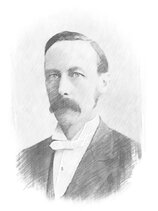 PT Forsyth
PT Forsyth
"Creation means life, movement, evolution. What is the goal and where? We cannot see it simply by looking out. The future is a book shut and sealed. The great end does not gleam, a City of God with shining towers, on the horizon that closes our gaze. Can we, then, presume it from a survey of history as far as it has gone? Can we calculate the final trend, if we do not see the point of convergence? How can we? How do we know how much of history is yet to run? Is the decisive part, the fifth act, yet to come? Have we any idea in which act we entered the house? We see but a small area of all time as yet. And the lines are not straight, nor on any calculable curve. They are labyrinthine.................We possess, in a living and present Christ, God's goal and the destiny of the soul and of the world. We are put (miraculously it is true, by the Spirit) in possession of a God whose holy self-sufficiency secures the certainty of his purpose, and whose purpose is the world's salvation to Himself in a kingdom. it is not a salvation to prosperity, nor to civilization, nor to idealism, but to Himself, to His obedience, His communion, His realm. In this revelation, the economy of salvation becomes the principle of the movement of the universe. Nature is but a draught scheme of salvation with the key on another sheet where the eternal act of redemption is found to carry and crown the long process of creation. It is God's salvation of the world that dominates the long history of the world infallibly, if not at every point palpably. Such is the position of Christian faith, and it is the ground of all our good hope and sure outlook for the future. Such is the nature of Christian teleology. It rises from our experience of the Christian revelation." --PT Forsyth; The Justification of God; 1916
rt france
 RT France
RT France
Though the couple were not yet living together, it was a binding contract entered into before witnesses which could be terminated only by death (which would leave a woman a “widow”) or by divorce as if for a full marriage…; sexual infidelity during the engagement would be a basis for such divorce. About a year after the engagement… the woman (then normally about thirteen or fourteen) would leave her father’s house and go live with the husband in a public ceremony [a wedding] --R. T. France, The Gospel of Matthew, NICNT (Grand Rapids, MI: Eerdmans, 2007)
andrew fuller |
February 6, 1754 - May 7, 1815
|
Andrew Fuller was born in Soham, Cambridgeshire, England, where in 1775 he was ordained pastor of the Baptist church. Originally schooled in the hyper-Calvinist theology then prevalent in parts of the Particular Baptist denomination, he became convinced in 1775 that the hyper-Calvinist position was not scriptural. In 1785 he published The Gospel Worthy of All Acceptation, which did much to prepare his denomination for accepting this missionary obligation. As pastor in Kettering, Northamptonshire, from 1783, Fuller became firm friends with John Sutcliff of Olney, John Ryland of Northampton, and later the young William Carey. The strengthening missionary vision of this group bore fruit on October 2, 1792, when the Particular Baptist Society for Propagating the Gospel among the Heathen (later known as the Baptist Missionary Society) was formed in the home of one of Fuller’s deacons in Kettering. Fuller was appointed secretary. Until his death he combined the demands of a busy pastorate with managing the affairs of the BMS.
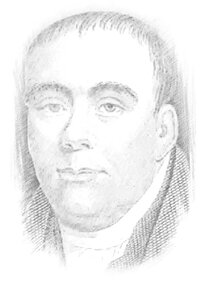 Andrew Fuller
Andrew Fuller
The great thing necessary for expounding the Scriptures is to enter into their true meaning. We may read them, and talk about them, again and again, without imparting any light concerning them. If the hearer, when you have done, understand no more of that part of Scripture than he did before, your labor is lost. Yet this is commonly the case with those attempts at expounding which consist of little else than comparing parallel passages, or, by the help of a Concordance, tracing the use of the same word in other places, going from text to text till both the preacher and the people are wearied and lost. This is troubling the Scriptures rather than expounding them. If I were to open a chest of oranges among my friends, and, in order to ascertain their quality, were to hold up one, and lay it down; then hold up another, and say, This is like the last; then a third, a fourth, a fifth, and so on, till I came to the bottom of the chest, saying of each, It is like the other; of what account would it be? The company would doubtless be weary, and had much rather have tasted two or three of them. (Complete Works of Andrew Fuller, 1:712–13)
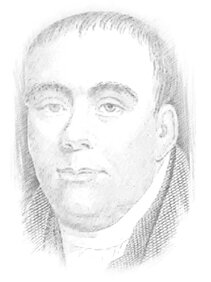 Andrew Fuller
Andrew Fuller
If in anything we need Divine instruction, it is in drawing near to God. It does not appear to have been Christ’s design to establish a form of prayer, nor that it was ever so used by the disciples; but merely a brief directory as to the matter and manner of it. Such a directory was adapted not only to instruct, but to encourage Christians in their approaches to God.
--Andrew Gunton Fuller, The Complete Works of Andrew Fuller, Volume 1: Memoirs, Sermons, Etc., ed. Joseph Belcher (Harrisonburg, VA: Sprinkle Publications, 1988), 578-583.
- First, The character under which we are allowed to draw near to the Lord of heaven and earth.—“Our Father.”
- Secondly, The place of the Divine residence.—“Our Father, who art in heaven.”
- Thirdly, The social principle which pervades the prayer.—“Our Father—forgive us,” etc.
- Fourthly, The brevity of it.—“Use not vain repetitions, but in this manner pray ye.”
- Fifthly, The order of it.—Our attention is first directed to those things which are of the first importance, and which are fundamental to those which follow.
- “Give us this day (or day by day) our daily bread.” Bread comprehends all the necessaries, but none of the superfluities, of life.
- “Forgive us our debts, as we forgive our debtors.” As bread in this prayer comprehends all the necessaries of life, so the forgiveness of sin comprehends the substance of all that is necessary for the well-being of our souls.
- “Lead us not into temptation, but deliver us from evil.” The last petition respected the bestowment of the greatest good; this, deliverance from the worst of evils. Christ teaches us to suspect ourselves.
--Andrew Gunton Fuller, The Complete Works of Andrew Fuller, Volume 1: Memoirs, Sermons, Etc., ed. Joseph Belcher (Harrisonburg, VA: Sprinkle Publications, 1988), 578-583.


